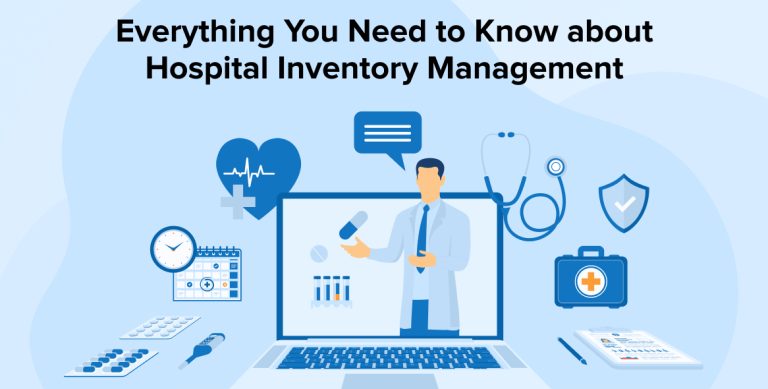
A Hospital Inventory is a stock of all the medical resources such as equipment, medicines, and patient health data that are generally found in any small or large healthcare facility.
Every hospital would have an inventory management technique in place, but many of them still handle their inventory using basic Excel sheets. The supply chain expenses also keep on rising every year. However, you can reduce the cost and increase efficiency by adopting Health IT Development for inventory management at hospitals.
The global hospital asset tracking and inventory management systems market grew from $25.28 billion in 2022 to $27.27 billion in 2023. This growth represents a compound annual growth rate (CAGR) of 7.9%. – GlobeNewswire
Thus, health institutions should prioritize using software solutions to aid their inventory management processes. This approach can help cut costs, labor, and energy consumption while also maintaining their inventory more accurately.
Do you want to know how? Let’s discuss the management systems and everything you must know about hospital inventory management systems in this article below!
1. What is Hospital Inventory Management?
Hospital Inventory Management is a workflow that keeps track of the health system’s inventories, transactions, bookings, payments, and other important details. An effective inventory management system is essential for healthcare firms that need to monitor medical products, order and administer drugs, or sell health items to patients Inventory management solutions assist major firms avoid financial losses and product shortages by maintaining a precise and up-to-date record of items and resources.
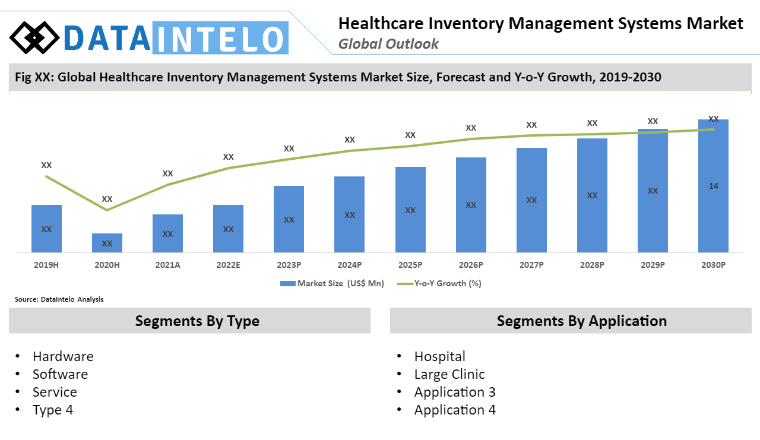
Managing hospital inventory can be challenging because it involves monitoring everything from medical supplies and healthcare equipment to spare medications. Hospital staff units have to take care of a lot of things, and managing these tasks using old-fashioned ways is simply hectic and much more time-consuming.
Healthcare inventory management software is designed to simplify the difficult task of handling large inventories.
2. Why is Hospital Inventory Management Important?
Healthcare institutions are required to maintain records of diverse inventory items, such as pharmaceuticals, surgical instruments, patient prescriptions, and medical and wellness items.
Although using a basic Excel spreadsheet may appear sufficient for inventory management, it is more advantageous to adopt a simplified inventory management strategy. The implementation of an effective management workflow inside medical institutions has potential benefits in terms of time, financial resources, and labor. Medical institutions are under significant pressure to save expenses, and one key strategy to achieve this objective is to optimize inventory management processes.
Strategic pre-planning of necessary supplies has the potential to yield substantial cost savings and optimize time allocation. Additionally, effective inventory management offers the following advantages:
2.1 Contract Compliance
Efficient healthcare inventory management is essential for accurate procurement and utilization of supplies. It ensures that companies do not acquire either too few or too many items. This serves as a safeguard against breaches of bulk purchase agreements.
2.2 Digitized Data
Virtual inventory management optimizes operational procedures by eliminating mistakes and reducing reliance on paper-based operations. Utilizing paperless data systems enables individuals to effectively arrange their information and inventories more efficiently.
2.3 Improved Communication
An excellent healthcare inventory management system facilitates seamless communication between administrative teams and other healthcare staff. This improvement enables efficient monitoring and control of supplies and equipment.
2.4 Equipment and Instrument Protection
Inventory management serves as an effective deterrent against theft by enabling the continuous monitoring and tracking of equipment’s whereabouts.
3. Challenges of Hospital Inventory Management
Hospital inventory management faces several challenges. The complexities and difficulties are explained in detail below.
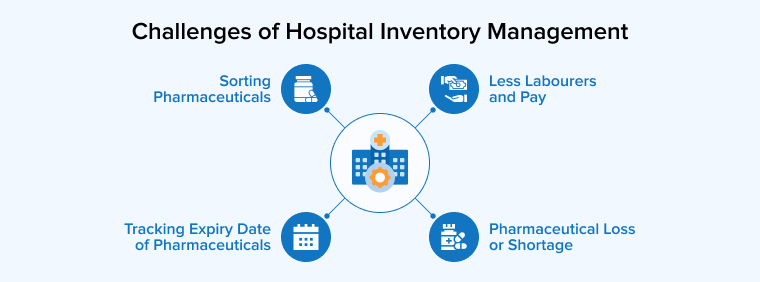
3.1 Sorting Pharmaceuticals
Nurses are frequently responsible for tracking and managing hospital supply chains while physicians are mostly occupied with compiling the lists of required medical supplies and instruments.
3.2 Pharmaceutical Loss or Shortage
Emergencies are a frequent occurrence in healthcare facilities. As a result, it is critical to maintain a sufficient supply of medical equipment and resources. Certain products, on the other hand, have a storage life. As a result, it is critical to rotate it out on schedule.
3.3 Tracking Expiry Date of Pharmaceuticals
When the supplies are stocked up for emergencies, it becomes more challenging for the staff to regularly track expiries of different items. As a result, sometimes many healthcare providers tend to pass on expired medical items to the patients.
3.4 Less Labourers and Pay
Focusing too much on cost-cutting leads to improper and mannerless workflow sometimes. Due to less labor pay, the staff tends to neglect minor important things that again add up a lot to a patient’s health and create a challenge for them.
4. How Hospital Inventory Management Software Helps in Solving these Challenges
Hospitals often face challenges with overspending and under-saving because of the difficulty of controlling inventories. It might take a considerable amount of time for hospitals to keep track of all of their stock.
The hospital software helps by offering a simple way for hospital workers to track their inventories. The program also facilitates order administration and the purchasing process, making these tasks simpler than they would be without the software.
The great thing about this software is that it can customize its features according to the demands of every given institution. you aren’t stuck with the same options as everyone else.
There are many moving parts in a hospital, but the ones that require immediate treatment must take precedence. If you need assistance creating a flawless system, you may find numerous qualified Healthcare Software Development companies to employ in India. The challenges that arise can be mitigated with the use of hospital inventory software by following points.
- Identifying consumables that are running low and placing new orders in time.
- Assisting in determining what should be ordered and how much should be kept on hand.
- Eliminating unnecessary expenditures by slowing the rate at which stock is consumed.
- Keeping workers from having to waste time searching for materials they need.
Hospitals rely on effective inventory management to guarantee that all necessary supplies and medications are available to patients at all times.
5. Features of Hospital Inventory Management Software/System
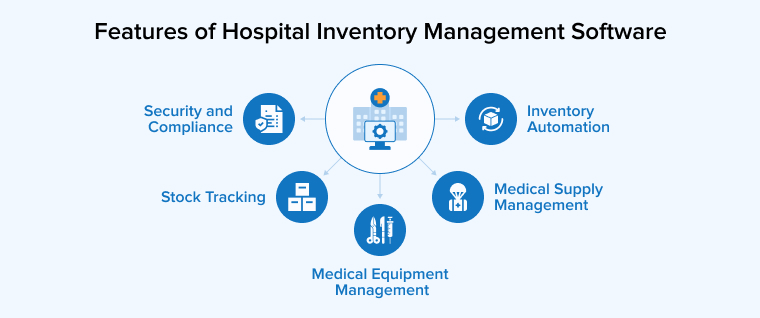
Below are some of the innovative features that can be included in the hospital inventory management system:
5.1 Stock Tracking
- The implementation of a real-time monitoring system for the tracking of pharmaceuticals, healthcare amenities, and equipment currently available in inventory.
- The process of creating distinct barcodes using an item locator system.
- The implementation of notification systems for monitoring supply levels, expiration dates, and the need for reordering.
- Implementing low stock warnings for essential products.
5.2 Medical Supply Management
- Management of medical supply data, including identification, pricing, and descriptions of intended use.
- The process of recording medical supply utilization cycles for demand forecasting.
- The management of medical supply distribution
5.3 Medical Equipment Management
- The management and examination of equipment utilization.
- Examining the historical usage data of medical equipment.
- The management of medical device allocation.
5.4 Inventory Automation
- The process of automated order placing.
- Monitoring the expenses of medication and medical supplies.
- Automated management of expiry dates.
5.5 Security and Compliance
- Allowing users to log in depending on their assigned roles.
- Facilitating appropriate and equitable access for all members of the care team.
- The objective of this effort is to guarantee adherence to the Health Insurance Portability and Accountability Act (HIPAA).
- Establishing the guidelines for generating discrepancy reports.
6. Benefits of Healthcare Inventory Management Software
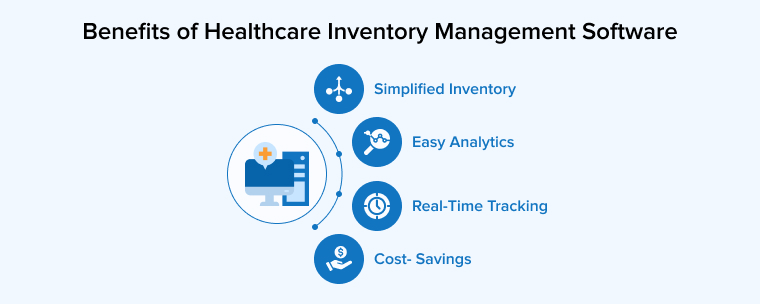
Healthcare inventory management software provides a wide range of benefits that can significantly improve the efficiency of healthcare.
6.1 Simplified Inventory Management – Tracking Asset
If you want to make the process of inventory management seamless, you simply have to use healthcare inventory management software.
Healthcare stocks and supplies keep on fluctuating at a large scale due to the present unpredictable scenario. An ideal medical inventory management software can automate these tedious procedures and reduce human effort so that they can focus on taking care of their patients.
6.2 Reducing Inaccuracies, Easy Analytics & Maintaining the Supply
Inventory & stock management is not a one-time procedure. It is an ongoing process happening throughout the year. Earlier, when all these tasks were done by humans, the process was prone to errors which led to improper or faulty stock management.
With the adoption of an inventory management system, there is no room for error. Data is being recorded and tracked pretty much precisely. Also, almost all your orders can be synchronized and stock levels get adjusted automatically whenever you make a sale.
6.3 Real-Time Tracking

The program built in the software enables real-time tracking, this implies that the inventory is regularly refreshed up to date. This gives you access to a precisely counted inventory whenever you add or sell items.
Additionally, you may manage inventory transactions and have them regularly reordered when supplies run low. If the goods do not arrive at its location, you will be notified. Isn’t it brilliant?
6.4 Cost- Savings
Streamlining your inventory management can lead to significant cost savings. Till now you had a fair chance of eliminating the inventory costs associated with human errors but what’s more? Well, it can save you from the nightmares of running out of supplies. During urgent requirements, the hospitals tend to borrow or buy supplies at higher costs as sometimes it is the question of patients’ lives.
7. Types of Hospital Inventory
Numerous healthcare facilities exhibit a deficiency in implementing a uniform inventory management system. The adoption of a consistent approach has the potential to substantially reduce expenditures. There exist two distinct categories of healthcare inventory management, necessitating an extensive understanding of the advantages and drawbacks associated with each. Healthcare institutions have the option to employ many strategies for managing their inventories, which include the following:
7.1 Periodic Inventory
The periodic inventory system is a method used in accounting to track and manage inventory. It involves doing physical counts of inventory at specific intervals. The process of periodic inventory necessitates manual updating of inventory data by staff. In this particular approach, staff members engage in periodic inventory-taking. For instance, it is common practice for organizations to do inventory checks every week or at the culmination of a comparable time frame. Although this approach may be adequate for minor healthcare establishments, it is suboptimal for hospitals and more extensive healthcare institutions.
This inventory management approach presents a considerable margin for mistakes and detracts from the allocation of time toward other critical responsibilities.
7.2 Perpetual Inventory
Perpetual inventory management is a system that maintains a continuous and automated process of updating inventory data. The utilization of a perpetual inventory system necessitates sophisticated software, which may incur higher expenses compared to the traditional manual periodic inventory approach. However, the advantages offered by the perpetual inventory system outweigh the associated costs. Perpetual inventory systems encompass crucial elements, including the recording of orders, shipments, additions, and removals. Medical personnel can continuously monitor the utilization of equipment, ensuring that all supplies are consistently documented and accurately recorded.
8. Hospital Inventory Management Best Practices to Follow
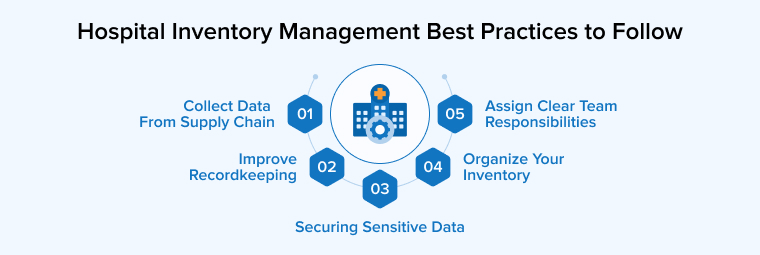
By implementing these best practices, healthcare organizations can enhance their operations, reduce human error, and provide security to patient data.
8.1 Collect Data From Supply Chain
With the help of the supply chain, healthcare businesses can save a lot of money and further, use that data to identify whether the techniques used in inventory management are cost-effective or not.
Failure to use supply chain data effectively may lead to millions in lost revenue. Rather than that, one must consider the data to analyze whether your inventory management system is as efficient as it is supposed to be.
With increasing concern for society’s health and the easy wonders of IT, more firms are trying to establish IT platforms that support value-based models. By adopting these practices, healthcare ventures may establish a more precise correlation between the required materials and clinical outcomes.
8.2 Improve Recordkeeping

With hospital inventory management software, you need to practice detailed recordkeeping. After all, you must have enough information on hand to make an informed decision. However, obtaining information is not enough, you have to keep checking and updating it to eliminate any discrepancies. So, you need a software solution with the capabilities for thorough analysis, or an analytical feature of sorts that can screen past data to predict future requirements.
8.3 Securing Sensitive Data
Each healthcare practitioner is acquainted with HIPAA, which safeguards patients’ health history from unauthorized access. It is critical to maintain the same level of safety for your inventory system, as your stockpile is what enables you to offer service to the patients you treat.
If unauthorized staff enter incorrect inventory counts or other data inconsistencies, it may create havoc in hospitals and other facilities that rely on discipline and accuracy to function successfully. Therefore, practicing security is one of the major do’s one should follow.
8.4 Organize Your Inventory to Avoid Redundancies
An essential strategy for effectively managing inventory is maintaining a high level of organization. An untidy or unorganized storage area might provide challenges in maintaining correct inventory records. Several potential issues might arise in the context of inventory management. These include misplacement of things, the possibility of a shortage being undiscovered, and the potential for over-ordering due to poor organization of inventory. As an illustration, it is recommended that healthcare personnel should prioritize the placement of things approaching their expiration date at the forefront of shelves, rather than the back. This practice facilitates these items to be used before those with a more distant expiration date. It is advisable to often utilize and extensively require products should be positioned in proximity to the entrance of supply rooms for easier access.
8.5 Assign Clear Team Responsibilities
Adopting an inventory management solution isn’t enough. The staff members must also do their job properly. And for that, they should have a clear understanding of their responsibilities. Assigning clear job responsibilities to each team member enables them to perform their roles efficiently. When everyone is aware of how they can contribute to the inventory management process and what they will be held accountable for, the work discrepancies and the margin of error are reduced.
9. Conclusion
It’s not easy to run a hospital that caters to the diverse needs of the patients. You not only have to ensure that the patients don’t experience any inconvenience while getting effective medical treatment, but you also need to stay prepared for any kind of emergency. With the help of hospital inventory management software, you don’t have to compromise on your patients anymore. Feel free to get in touch with us for efficient and automated inventory management software.






You are great at conveying the content in a brief and understandable manner. I liked how you busted the myths which were clogging the inventory management best practices. I clearly agree that implementing the points and inputs mentioned by you will uplift the efficiency of healthcare inventory management.
This blog provides valuable insights into the benefits and features of hospital inventory management software. The content is well-structured and easy to understand, making it a helpful resource for hospital administrators and staff looking to streamline their inventory management processes.
After reading this article, I now have good knowledge about Hospital Inventory Management because it describes what it is, its challenges, benefits, and best practices. Thanks for sharing!
As a healthcare professional, I know that Surviving in the hospital sector is not easy, but it is a necessity. After reading this article, I can say that hospital inventory management software can definitely ease My work. With its help, I don’t have to compromise with my patients' data anymore.
Thank you for sharing your insights on hospital inventory management. I found the section on the challenges of hospital inventory management to be particularly interesting. I think it's important to be aware of these challenges in order to choose the right healthcare software solution.
This blog post is a must-read for anyone involved in hospital inventory management. The author provides a comprehensive overview of the topic, including the challenges, benefits, and tips for choosing the right software solution. Overall, this is an excellent blog post that provides essential information on a Hospital Inventory Management.
This informative blog dives deep into the advantages and features of hospital inventory management software, including how it can help to reduce costs, improve accuracy, and free up staff time. Some of the key features of this Software include stock tracking, medical supply management, and medical equipment management.
I enjoyed reading this article about hospital inventory management. The section discussing the types of hospital inventory management was particularly insightful. The author provides detailed explanations of both periodic and perpetual methods. Highly recommended!